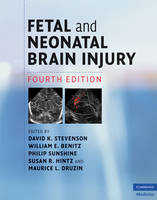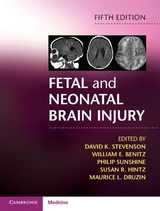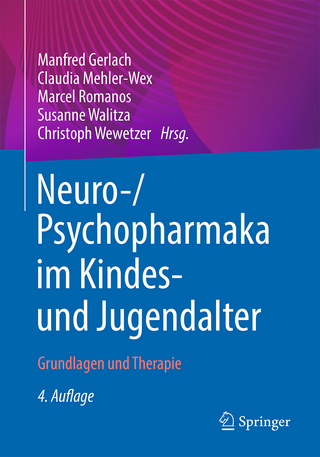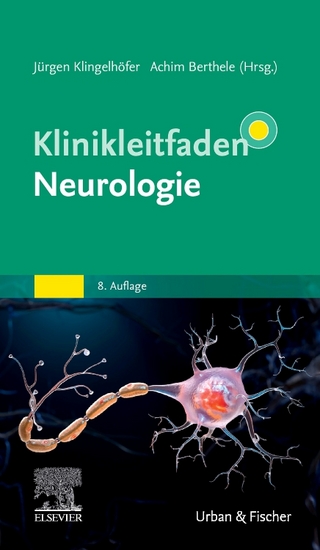
Fetal and Neonatal Brain Injury
Cambridge University Press (Verlag)
978-0-521-88859-2 (ISBN)
- Titel erscheint in neuer Auflage
- Artikel merken
Improvements in the detection of fetal and neonatal brain injuries, advances in our understanding of the pathophysiology, cellular and molecular bases of encephalopathy, and new treatment options have all combined to produce significant changes in the management of neonatal brain disorders in the past few years. This new edition of Fetal and Neonatal Brain Injury brings the reader fully up to date with all advances in clinical management and outcome assessment. New material includes pregnancy-induced hypertension, HELLP syndrome and chronic hypertension, complications of multiple gestation, neurogenic disorders of the brain, neonatal stroke and much more. An expanded, highly illustrated chapter on structural and functional imaging of the fetal and neonatal brain is also included. An outstanding international team of highly experienced neonatologists and maternal-fetal medicine clinicians have produced a practical, authoritative clinical text that gives clear management advice to all clinicians involved in the treatment of these patients.
David K. Stevenson is Harold K. Faber Professor of Pediatrics and Vice Dean and Senior Associate Dean for Academic Affairs at Stanford University School of Medicine, Stanford, USA. William E. Benitz is the Philip Sunshine Professor of Pediatrics and Chief, Division of Neonatal and Developmental Medicine at Stanford University School of Medicine, Stanford, USA. Philip Sunshine is Professor of Pediatrics (Emeritus) at Stanford University School of Medicine, Stanford, USA. Susan R. Hintz is Associate Professor of Pediatrics at Stanford University School of Medicine, Stanford, USA. Maurice L. Druzin is Charles B. and Ann L. Johnson Professor and Professor and Vice Chair, Department of Obstetrics and Gynecology and Chief, Division of Maternal Fetal Medicine at Stanford University School of Medicine, Stanford, USA.
1. Neonatal encephalopathy; 2. Mechanisms of neurodegeneration and therapeutics in animal modes of neonatal hypoxic-ischemic encephalophathy; 3. Cellular and molecular biology of hypoxic-encephalopathy; 4. The pathogenesis of preterm brain injury; 5. Prematurity and complications of labor and delivery; 6. Risks and complications of multiple gestations; 7. Intrauterine growth restriction; 8. Maternal diseases that affect fetal development; 9. Obstetrical conditions and practices that affect the fetus and newborn; 10. Fetal and neonatal injury as a consequence of maternal substance abuse; 11. Pregnancy induced hypertension, HELLP syndrome and chronic hypertension; 12. Complications of labor and delivery; 13. Fetal response to asphyxia; 14. Antepartum evaluation of fetal well-being; 15. Intrapartum evaluation of the fetus; 16. Clinical manifestations of hypoxic-ischemic encephalopathy; 17. The use of EEG in assessing acute and chronic brain damage in the newborn; 18. Neuroimaging in the evaluation of pattern and timing of fetal and neonatal brain abnormalities; 19. Light-based functional assessment of the brain; 20. Placental pathology and the etiology of fetal and neonatal brain injury; 21. Correlations of clinical, laboratory, imaging and placental findings as to the timing of asphyxial events; 22. Congenital malformations of the brain; 23. Neurogenetic disorders of the brain; 24. Hemorrhagic lesions of the CNS; 25. Neonatal stroke; 26. Hypoglycemia in the neonate; 27. Hyperbilirubinemia and kernicterus; 28. Polycythemia and fetal-maternal bleeding; 29. Hydrops fetalis; 30. Bacterial sepsis in the neonate; 31. Neonatal bacterial meningitis; 32. Neurological sequelae of congenital perinatal infection; 33. Perinatal human immunodeficiency virus infection; 34. Inborn errors of metabolism with features of HIE; 35. Acidosis and alkalosis; 36. Meconium staining and the meconium aspiration syndrome; 37. Persistent pulmonary hypertension of the newborn; 38. Pediatric cardiac surgery: relevance to fetal and neonatal brain injury; 39. Neonatal resuscitation: immediate management; 40. Improving performance, reducing error, and minimizing risk in the delivery room; 41. Extended management following resuscitation; 42. Endogenous and exogenous neuroprotective mechanisms after hypoxic ischemic injury; 43. Neonatal seizures; 44. Nutritional support of the asphyxiated infant; 45. Early childhood neurodevelopmental outcome of preterm infants; 46. Assessment and management of infants with cerebral palsy; 47. Long term impact of neonatal events on speech, language development and academic achievement; 48. Neurocognitive outcomes of term infants with perinatal asphyxia; 49. Appropriateness of intensive care application; 50. Medicolegal issues in perinatal brain injury.
| Erscheint lt. Verlag | 18.6.2009 |
|---|---|
| Zusatzinfo | 103 Tables, unspecified; 72 Halftones, unspecified |
| Verlagsort | Cambridge |
| Sprache | englisch |
| Maße | 223 x 282 mm |
| Gewicht | 1990 g |
| Themenwelt | Medizin / Pharmazie ► Medizinische Fachgebiete ► Neurologie |
| Medizin / Pharmazie ► Medizinische Fachgebiete ► Pädiatrie | |
| ISBN-10 | 0-521-88859-X / 052188859X |
| ISBN-13 | 978-0-521-88859-2 / 9780521888592 |
| Zustand | Neuware |
| Haben Sie eine Frage zum Produkt? |
aus dem Bereich



